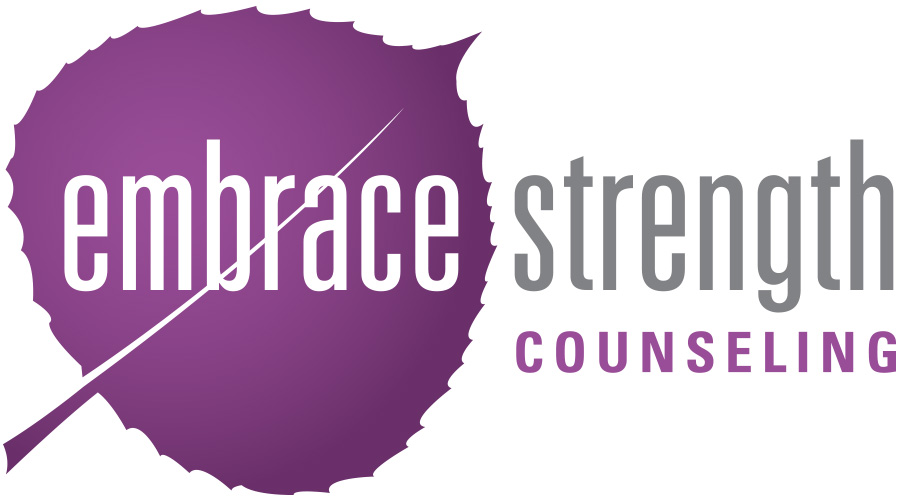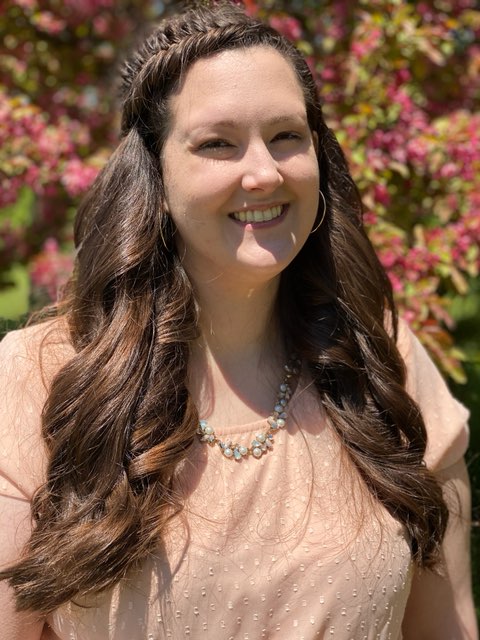We are thrilled to welcome Kenzie Taff to the Embrace Strength Counseling team! Kenzie graduated with her Master’s in Counseling Psychology in 2022 and worked as a primary therapist at a residential eating disorder facility in Utah. When she made the move to Colorado this summer, we were overjoyed to welcome Kenzie to our group. Kenzie brings authenticity, patience, and extensive eating disorder knowledge to our practice. Currently she offers individual counseling both in person and virtually, and will earn the title of LPC next year. To learn more about Kenzie, read our Q&A below!
What made you want to be a therapist?
Growing up I always wanted to be a nurse, so that’s where I started off. It’s funny because I always used to say, “The one field of nursing that I never want to work in is psychology.” But then I got to my psych nursing rotation and fell in love with it.
In nursing I always struggled with wanting more time with patients to build relationships and connect. You only have so much time with the patients when they’re at the hospital. This, in combination with my own mental health struggles, made me want to switch paths to become a therapist. Me going to my own therapy really impacted me, and I wanted to do that for others and let them know that they are not alone.
How would you describe your approach to therapy?
I would say that connection is the foundation of my approach to working with clients. I always make sure that there’s a strong relationship and connection there, and I work hard to build rapport with clients so that they can come into session and be open, honest, and vulnerable. Providing that safe space is important to me.
My approach to therapy is also very collaborative; I want clients to let me know what they feel like they need to focus on. As far as different theories and treatment styles, I am very drawn to Acceptance and Commitment Therapy (ACT). I love the idea of looking at difficult emotions, thoughts, and experiences as something that we are going to experience in our lives. It’s not something that we can make “go away,” whether it’s anxiety or depression or sadness… whatever it may be. So how do we work on accepting that those things are going to be present in our lives and then still be able to live meaningful lives?
I also think Dialectical Behavior Therapy (DBT) can be helpful in some areas, like being able to learn different skills and ways to cope with certain distressing emotions. Although sometimes I do think working on skills can be a band-aid, so it’s important to dig deeper and look at what’s underneath the urge to act on certain behaviors.
What kinds of clients and issues are you most passionate about working with?
I love working with clients that struggle with eating disorders, disordered eating, and body image. This comes from my own personal experience of struggling with these things in the past. I’m really drawn to helping others heal their relationships with food and body. I also really like working with clients who struggle with depression, anxiety, self-injury, and trauma.
One area I am wanting to learn more about and work more with is OCD. At my last job I ended up working with quite a few clients who had OCD along with eating disorders and I’m very interested in learning more about how those two intersect.
What unique strengths do you feel like you bring to this work?
A big one is my ability to be patient. This has really served me well in working with adolescents. One of my strengths is being able to meet clients where they’re at and give them the space they need. I am definitely committed to being with a client in that space, rather than getting frustrated or telling them, “You’re not ready for this so I am not going to work with you anymore.” I would also say that my ability to be authentic and show compassion are other strengths of mine.
When a client is in session with you, what can they expect?
It’s pretty laid back. I like to let clients come in and say, “Hey, this is what I need today” or let me know if they aren’t sure what they need, because that totally happens too. So once we identify what they need, we go from there. There is never pressure or pushing from me to talk about certain things that people aren’t ready to talk about. If they want to sit in silence for a little bit, that’s okay too.
If you could help your clients to learn or feel one specific thing during their time with you, what would it be?
I guess if I could only pick one thing, I would want them to know that it’s okay to struggle with your mental health. No matter if it’s anxiety or depression or anger- it doesn’t mean that you are broken or need to be fixed.
I know it’s gotten better, but there is still a lot of stigma around mental health in our society. There’s that idea that if you struggle with mental health there’s something wrong with you. So if there’s anything I can instill in my clients, it’s the idea that it’s part of being human to struggle, and there’s nothing wrong with asking for help.
What drew you to Embrace Strength?
Definitely the fact that you all work with clients that struggle with eating disorders and disordered eating. Additionally, I was drawn to the fact that Embrace Strength is so committed to increasing access to mental healthcare. That is something that is close to my heart and important to me.
I also love that Embrace Strength is committed to the social justice/multicultural piece; that’s such an important part of our work and it’s not always easy to find places that incorporate this into their work.
What are your goals in working with Embrace Strength?
I am looking into getting certified in EMDR because that is something I would love to incorporate into my sessions with clients, especially because trauma and eating disorder intersect so often. I’m also certified in Eagala which is a form of equine-assisted therapy, so I would love to find a way to incorporate that more. It’s very cool–you can even do EMDR using horses. You can train horses to walk and run in ways that create bilateral stimulation.
I would also like to grow my ability to incorporate biofeedback in my work with clients. I did that in my previous job and found it really meaningful.
What do you do outside of work to maintain a healthy, well-balanced life?
There are several things–for me, the most important thing is giving myself intentional time to turn off my “work brain,” take off my therapist hat, and allow myself to just relax. I love reading for fun and making art, whether that’s watercoloring or crocheting. I like to spend time outside and go on walks with my golden retriever, as well as spend time with friends and family. That helps me disconnect from work and allow my cup to be refilled.
If you weren’t a therapist, what do you think you would be doing?
Honestly probably something in healthcare. Maybe nursing, but probably something to do with kids or babies. I love kids and I’ve always said if I could get paid to do any job, I would just hold babies… so probably pediatric nursing.
If you are interested in working with Kenzie, please send us an email at info@embracestrengthcounseling.com to schedule a free phone consultation.

